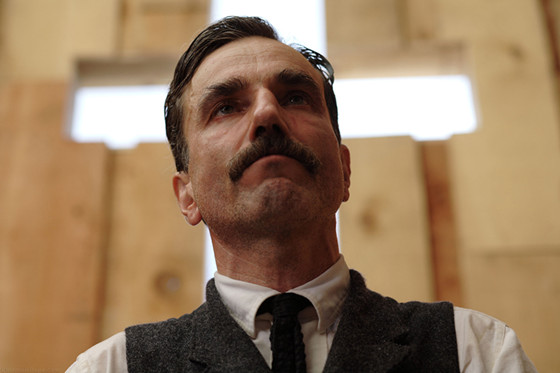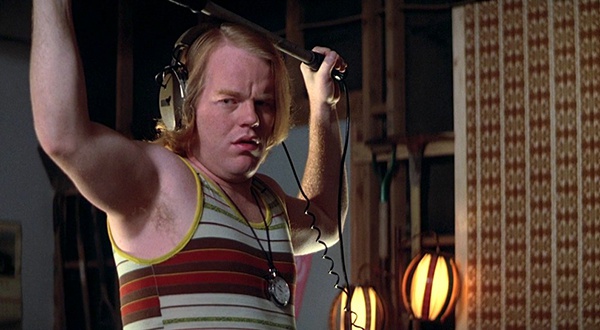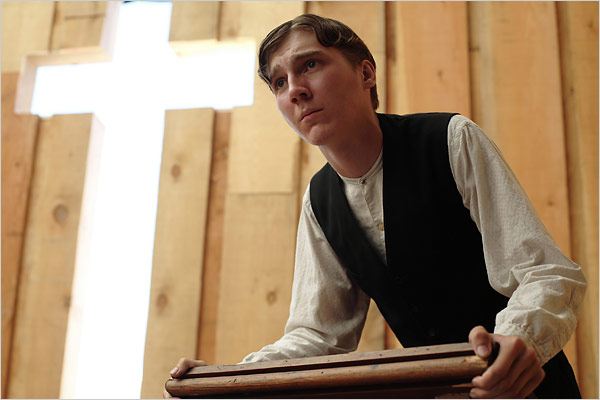
For a film school drop-out who, in his younger days, was renowned for being something of an egotistical, cocaine addled control freak, Paul Thomas Anderson has cemented himself as a much loved director in the hearts of many. One of the vital elements making his films such high quality is the superb performances he repeatedly elicits from his actors.
But what makes a great performance? Many would argue that the ability to fully engage an audience by taking hold of the character in a real, human way to drive the narrative forward, coupled with a distinctive voice and physical appearance are among the most important prerequisites which make for a ‘great’ performance.
The question becomes more complicated when we ask: what makes a great performance in a Paul Thomas Anderson film? There are so many from which to choose, from Daniel Day Lewis’ Oscar winning turn as Daniel Plainview to Joaquin Phoenix’s performance as sincere hippie Doc Sportello, the options are numerous. Yet there are those performances – including Day Lewis’ Plainview and Phoenix’s Doc – which are particularly outstanding, and are worthy of a special mention.
10. Joanna Newsom (Sortilège) – Inherent Vice

On her time working with Anderson, Joanna Newsom stated that “the most striking thing was Paul making the decision to confer the narrative voice onto a fringe character. He took these little cues from the book that Sortilège seems sort of mystic and all-seeing in a kind of very unusual, unimposing way, and he just recognised that that was a very convenient place to house the narrative”.
Indeed, placing Newsom in the role of Sortilège was a stroke of genius on the part of Anderson, and the wielding of the role by Newsom is stunning in terms of her delivery of the role and how she functions in the narrative. Admittedly, Newsom does not have as much screen time as other characters, but what is so important about her performance is how she gives clarity to the narrative which might otherwise come across as rather too nebulous for some.
Important to this is the tone of her voice; when discussing her music, people often complain that Newsom’s voice is annoyingly shrill, but this is simply a failure to engage with her properly as both an artist and an actor.
In Inherent Vice, Newsom is captivating through her breathy, childlike narration which guides the audience through the many strange twists the film takes. What is more, her actual performance in front of camera is understated and endearing, carrying off the hippie mystic look perfectly. If anything, it is a shame she is not in front of camera more.
9. Phillip Seymour Hoffman (Scotty J.) – Boogie Nights

There is so much humour and sadness to the late Phillip Seymour Hoffman’s Scotty J; with his languid flaxen hair and proclivity for wearing tight, garish shirts, Scotty is singled out in the film as something of a laughing stock, an idea played up to by Hoffman to elicit sympathy for the character. Indeed, throughout Boogie Nights Hoffman works hard to make Scotty endearing through his earnest rendering of his bumbling self-consciousness and sweet adoration of Dirk (Mark Wahlberg) which ends in upset.
Scotty’s longing for Dirk culminates when he forces himself upon Dirk, desperate for him to reciprocate his undying love. This moment of attempted release of repressed sexual urges feels so true to life, so human and honest that it is almost impossible not to love Scotty.
What makes this performance so perfect is Hoffman’s carefully weighted balance of ironic detachment from Scotty, coupled with a sincere attachment to him. As Scotty berates himself for trying to kiss Dirk with his repeated ‘I’m such an idiot’ we are simultaneously invited to laugh at him and feel sympathy for him.
Ironic detachment is a common trope in films deemed ‘postmodern’, so it is refreshing that Hoffman imbues his character with this notion of sincerity in his performance. It is this careful balance Hoffman evokes which puts his turn as Scotty J. firmly in this top 10.
8. Paul Dano (Eli/Paul Sunday) – There Will Be Blood

No one can play the role of the sniveling wretch quite like Paul Dano. His turn as Daniel Plainview’s foil Eli Sunday (and, curiously, his performance earlier in the film as Eli’s brother Paul) has won him many admirers.
Originally cast just in the role of Paul Sunday, Paul Dano took on the role when Kel O’Neill dropped out of the film, apparently finding working with Dnaiel Day Lewis too intense. It was a masterstroke on the part of Anderson to put Dano in the role of Eli and Paul, for it intensifies the strange relationship between Eli and Plainview and introduces the idea that Eli and Paul could in fact be the same person.
Dano’s performance is magnificent for the way it captures Eli’s religious fervor with an intense hysterica; particularly memorable are Dano’s maniacal mannerisms as he gyrates and dances during Eli’s sermon, and screaming ‘get out of here ghost! Get out of here ghost!’ in his wretched, screeching voice.
What Dano communicates to the audience is the possibility of reading Eli’s character as an actor himself who just turns up and performs in front of his congregation; a fraud who revels in the ego boosting and potential for financial gain. Towards the end of the film, as Plainview slowly makes it clear that the land Eli thinks can be drilled for oil is worthless, he crumples into a mess, caught in the midst of a crisis of faith.
The way he screws his face, the shrill shriek of his voice and the way he works himself up into hysteria bespeak the quality of his acting and the time spent in character, while also demonstrating that he is quite capable of matching the acting prowess of Oscar winning Day Lewis.
7. Gwyneth Paltrow (Clementine) – Hard Eight

Gwyneth Paltrow’s rendering of Clementine – part-time waitress and prostitute – is one of the most empathetic performances on this list. She is naïve of the world, lost and has an air of melancholy to her performance. We feel a great deal of sympathy for Clementine in that brief moment where she assumes Sydney – the aging gambler and paternal figure to both John and Clementine played by Phillip Baker Hall – just wants to sleep with, when in fact he wants to help her.
The naivety which Paltrow brings to Clementine in her performance brings with it a sense of being completely out of control, that she is lost in life no matter how much support she gets from Sydney and John, played by John C. Reilly. One of the film’s most memorable moments comes when Clementine and John hold a man hostage who is unwilling to pay her for sex.
When Sydney arrives to sort out the mess, Paltrow adds depth to Clementine by imbuing her with a childish petulance: “why is he doing that?” she bemoans as Sydney cleans the room for fingerprints. This petulance escalates to hysteria: “this man owes me!” she screams at John.
What is interesting here is how Paltrow contrasts Clementine’s childlike innocence with an adult awareness of the world and an acute sense of justice. It is a stellar performance, for it adds levels of complexity to Clementine which are arguably not present in Reilly’s or Hall’s performances.
6. Jeremy Blackman (Stanley Spector) – Magnolia

The cast list of Magnolia reads like a list of great performances. Singled out amongst behemoths such as Tom Cruise, John C. Reilly, Julianne Moore and Phillip Seymour Hoffman is, of course, Jeremy Blackman who plays the exploited child genius Stanley Spector. Coerced into performing on the children’s quiz show ‘What Do Kids Know?’ by his father, Stanley is arguably at the centre of the film, for the quiz show links the film’s characters in many complex and interweaving ways.
What makes Blackman’s performance so moving is the maturity with which he takes on the role, evoking the idea that Stanley is a child who has been forced to grow up before his years due to his father’s exploitation. What is more, his performance is particularly endearing in the way he evokes anguish as the adults around him exploit him and attempt to corrupt his innocence.
Blackman brings a naïve childlike acceptance of everything the adults around him say, which turns into a distrust and finally a rejection of the quiz show and its exploitative methods. There is also a hint of omniscience in Stanley’s character which Blackman plays up to perfectly.
When Stanley has left the quiz show and has broken into the local library, he acknowledges the rain of frogs with perfect calm. ‘This happens’, he says, ‘this is something that happens’. When all the adults around him are in hysterics during the famous frog sequence, Stanley remains Zen-like, transcending the corrupt adult world around him.